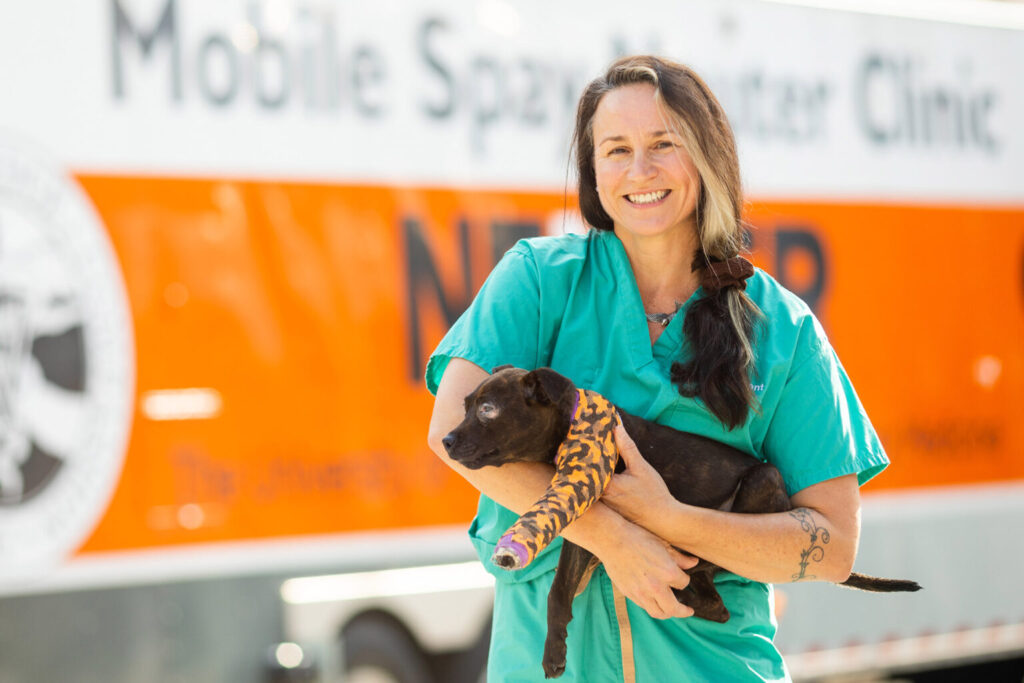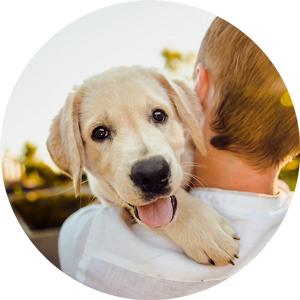Recovery tips following Pet Cancer Surgery
Wiki Article
Just How a Vet Oncologist Can Assist Improve Your Family pet's Quality of Life
Vet oncologists concentrate on the diagnosis and therapy of cancer cells in pet dogs, playing an essential function in boosting their lifestyle. They produce customized treatment plans that address the one-of-a-kind needs of each animal. Via advanced diagnostics and targeted treatments, these experts aim to manage symptoms properly. The trip does not finish there. Exploring the complete spectrum of care alternatives exposes even more concerning exactly how these experts can make a significant distinction.
Understanding the Role of a Vet Oncologist

Along with diagnosis, vet oncologists develop detailed treatment strategies customized to the demands of each family pet. These methods might consist of radiation treatment, radiation therapy, and medical interventions, targeted at not just extending survival yet additionally enhancing the general high quality of life. Moreover, they provide palliative care, concentrating on pain monitoring and convenience for pets facing incurable medical diagnoses. By teaming up with family pet proprietors, vet oncologists assure that family pets get one of the most efficient and compassionate treatment feasible during their cancer cells trip.
Customized Treatment Strategies for Your Family pet
When an animal is identified with cancer cells, developing a customized treatment plan becomes essential for resolving their distinct requirements and conditions. A veterinary oncologist meticulously assesses the kind of cancer, its phase, and the overall health of the animal. This comprehensive analysis permits the development of a tailored approach that might include a combination of radiation, surgical procedure, and radiation treatment therapy.The oncologist additionally thinks about the animal proprietor's preferences and lifestyle, making certain that the plan lines up with their objectives for their pet's treatment. Veterinary Cancer Specialist. Treatment plans are not static; they are frequently evaluated and changed based upon the family pet's reaction and any type of emerging needs. By concentrating on customized care, veterinary oncologists intend to boost the efficiency of treatments while keeping the pet dog's quality of life. This individualized approach promotes a better understanding of the illness, empowering pet proprietors to make informed decisions regarding their cherished buddies' health
Taking Care Of Signs and Adverse Effects
Taking care of the signs and adverse effects of cancer cells treatment is a crucial element of vet oncology. Veterinary oncologists use a variety of techniques to alleviate pain and enhance the overall wellness of animals undertaking treatment. This might include making use of anti-nausea medicines to fight throwing up and loss of cravings, which are usual side results of chemotherapy. Pain monitoring is also focused on, often involving the prescription of analgesics tailored to the pet dog's specific demands.Additionally, oncologists may recommend nutritional changes, incorporating top notch, quickly absorbable foods to sustain nutritional intake. Keeping an eye on blood job is essential to discover any kind of unfavorable reactions to therapy early, permitting timely treatments. Normal follow-ups enable the veterinary group to assess the pet's feedback to treatment and make needed changes. Via these thorough techniques, veterinary oncologists aim to enhance the top quality of life for animals encountering cancer therapy challenges.
Palliative Treatment and Comfort Measures
Palliative care plays an important duty in boosting the lifestyle for pet dogs identified with cancer, concentrating on convenience and emotional support instead of medicinal therapy. Veterinary oncologists focus on discomfort monitoring, guaranteeing that pets experience marginal discomfort during their ailment. This consists of the usage of anesthetics, anti-nausea drugs, and other treatments tailored to private demands.In enhancement to pharmacological interventions, ecological alterations can considerably enhance a family pet's top quality of life. Creating a calm, comfy area with soft bedding and easy access to food and water can relieve tension. Nutritional assistance is likewise vital; oncologists may recommend specialized diet plans that deal with the pet dog's demands and choices.
Emotional support for both the pet dog and its owners is vital. Vet oncologists supply guidance on coping methods, aiding households navigate the emotional challenges that accompany a cancer medical diagnosis. Inevitably, palliative care goals to guarantee that animals get the self-respect and comfort they deserve.
Working together With Your Regular Vet
Partnership with a regular vet is important for enhancing the treatment of pet dogs with cancer, as this partnership guarantees a complete approach to treatment and quality of life. The regular vet commonly has a detailed understanding of the pet dog's case history, which is vital when developing a therapy strategy. They can successfully communicate with the vet oncologist, making sure that all elements of the pet dog's health are considered.This partnership permits worked with care, which may consist of normal exams, keeping an eye on negative effects, and readjusting medicines as needed. Regular veterinarians can also give emotional assistance to family pet owners, helping them navigate the complexities of cancer therapy - Board Certified Veterinary Oncologist. By working closely with veterinary oncologists, they can facilitate a seamless change between different types of treatment, ensuring that pet dogs get the most efficient treatments while maintaining their convenience and health throughout the process. Together, they enhance the general lifestyle for pets facing cancer
Often Asked Inquiries

What Sorts of Cancers Cells Do Vet Oncologists Typically Treat in Family Pets?
Vet oncologists generally treat various cancers in pets, consisting of lymphoma, mast cell tumors, osteosarcoma, and soft tissue sarcomas. These professionals use sophisticated diagnostic methods and therapy options to deal with the certain needs of each pet.Exactly How Can I Prepare My Pet for a Veterinary Oncology Visit?
Preparing a family pet for a veterinary oncology consultation includes event medical records, keeping in mind signs, and preparing questions. Making certain the family pet is comfortable and tranquil during travel can likewise significantly enhance the overall experience and assessment performance.Are There Any Alternate Treatments for Pet Dogs With Cancer cells?
Alternative therapies for pets with cancer usually include acupuncture, natural medication, and dietary assistance. These methods might Pet Cancer Surgery match traditional therapies, possibly enhancing general well-being and providing helpful care throughout the family pet's cancer journey.Exactly how Frequently Should My Family Pet See the Vet Oncologist?
The regularity of sees to a vet oncologist normally depends upon the animal's particular condition and therapy plan. Routine assessments may be recommended every couple of weeks or months to keep an eye on progression and adjust treatments accordingly.What Expenses Are Related To Vet Oncology Providers?
Prices related to vet oncology solutions can differ extensively, including initial assessments, analysis examinations, therapy plans, and continuous care. Veterinary Oncologist. Animal owners must plan for possible expenditures that mirror the intricacy and duration of the treatment requiredVeterinary oncologists specialize in the medical diagnosis and therapy of cancer cells in pets, playing a vital role in boosting their quality of life. Many pet dog proprietors might not be familiar with the ins and outs of vet oncology, understanding the function of a vet oncologist is crucial for handling cancer cells in animals. The oncologist likewise considers the pet dog owner's preferences and lifestyle, making sure that the plan aligns with their goals for their pet dog's care. By focusing on customized care, vet oncologists aim to boost the effectiveness of therapies while maintaining the animal's high quality of life. By functioning very closely with vet oncologists, they can help with a smooth shift in between different types of treatment, ensuring that pet dogs obtain the most reliable treatments while preserving their convenience and wellness throughout the process.
Report this wiki page